Melbourne (Victoria Australia)
Cruise Port schedule, live map, terminals, news
Region
Australia - New Zealand - Pacific Ocean Islands
Local Time
2025-04-02 21:32
 64°F
64°F 17.7°C

 Light breeze
Light breeze1.9 m/s
 74 °F / 24 °C
74 °F / 24 °C 54 °F / 13 °C
Port Melbourne cruise ship schedule shows timetable calendars of all arrival and departure dates by month. The port's schedule lists all ships (in links) with cruises going to or leaving from Melbourne, Victoria Australia. To see the full itineraries (ports of call dates and arrival / departure times) and their lowest rates – just follow the corresponding ship-link.
| Day | Ship | Arrival | Departure |
|---|---|---|---|
| 21 December, 2024 Saturday | 18:00 | ||
| 22 December, 2024 Sunday | 07:00 | 21:00 | |
| 23 December, 2024 Monday | 07:00 | 17:00 | |
| 26 December, 2024 Thursday | |||
| 30 December, 2024 Monday | |||
| 30 December, 2024 Monday | 16:00 | ||
| 31 December, 2024 Tuesday | 11:00 | 01 Jan, 18:00 |
Melbourne cruise port is part of Port Phillip Bay and is located on its top end. Bellarine The Victoria state (southeast Australia) is the country’s smallest but most densely populated state, and the second-most populous - after NSW (New South Wales). Most of the population is concentrated in the surrounding Port Phillip Bay area. The huge metropolitan area includes the capital Melbourne City - country’s second-largest (after Sydney NSW) and followed by Brisbane (Queensland), Perth (Western Australia) and Adelaide (South Australia).
Melbourne is the main departure port (homeport) for cruises to Tasmania from Australia. Regularly scheduled cruiseferry crossings to Devonport leave from Geelong. The service is provided by the Tasmanian state-owned company TT-LINE Tasmania via 2 superfast ferries. TT LINE offers 2 overnight crossings (each night) leaving simultaneously from Geelong and Devonport.
Trends show that the Australian cruising market is growing at a rapid pace. It has some of the industry's highest penetration rates nationally. The Australian cruise ports' strongest competition today comes from Singapore and Hong Kong (China).
Port Melbourne (Victoria)
Port Melbourne (locode AUMEL) is one of the city's suburbs (population around 15,000), located approx 5 km (3 mi) southwest from downtown's Business District. Its area (to the north of West Gate Freeway) is split between Victoria state's government areas and Port Phillip (total area 21 km2, population around 100,000). It is also bordered by Hobsons Bay and Yarra River and includes 3 localities (Beacon Cove, Fishermans Bend, Garden City).
A former industrial zone, Port Melbourne is now a combined historic-industrial area, featuring large parklands, bayside beaches, luxury apartments, premium restaurants, bars and cafes. Bay Street is the port's main commercial area. Here are headquartered Australia's most famous circus (Circus Oz), Toyota Australia's main office and the Maritime Union of Australia.
Port Melbourne
Port of Melbourne is Australasia's largest seaport for general and containership cargo. It covers the area between Yarra River's mouth (downstream of Bolte Bridge) and Port Phillip, plus several docking piers on Hobsons Bay. Since 2003, the port is managed by the Victoria state-owned "Port of Melbourne Corporation".
Most of the Port's land area is in the West Melbourne suburb. Webb Dock Terminal (serving Ro-Ro and container ships) and Station Pier Terminal (city's passenger terminal serving cruise ships and ferries) are part of Port of Melbourne.
In September 2016, the seaport's all commercial operations were leased (50 years term / until 2066) to Lonsdale Consortium, which comprises Australian Government Future Fund, Queensland Investment Corporation, Global Infrastructure Partners (investment fund) and OMERS (Ontario Municipal Employees Retirement System). The port lease deal was for USD 9,7 billion.
In 2017, Port Melbourne was surpassed by Sydney NSW's Port Botany as main container shipping destination. In FY2017, seaport's share of this market decreased from 36% to 33%, while Port Botany's stake increased to 34%. As main reason for the drop was cited port's vessel size restrictions which don't allow large boxships to be docked. West Gate Bridge has 50 m (164 ft) high-tide clearance height and is among the primary issues, together with Yarra River shipping channel's depth and width. In recent years, all world's major container shipping companies expanded their fleets by adding large-sized newbuild boxships to reduce transportation costs.
On March 30, 2018, two new China-built gantry cranes (by ZPMC / "Shanghai Zhenhua Heavy Industries") were delivered at Melbourne Container Terminal (Webb Dock East). Same ZPMC cranes were also delivered in April in Sydney (one) and Brisbane (one).
- The equipment (all 9 gantry cranes) was ordered by DP World Australia (Australia's main and largest container port and supply chain operator) ’to serve the country's container terminals. By this USD 180 million project were also delivered 20x straddle trucks, 4x RTGs (rubber-tired gantry cranes), 38x forklifts (industrial trucks).
- Each of the ZPMC cranes costs USD 14 million, has rated capacity 65 tons (under spreader) and 75 tons (under heavy lift beam), rail gauge 25,3 m, above rail hoist height 38 m, hoist speed 90 m per min (loaded) and 180 m / min (unloaded).
In November 2018, Kalmarglobal (subsidiary of the Finnish company Cargotec) signed a deal with the Manila-based ICTSI (International Container Terminal Services Inc) for maintenance and support at VICT. ICTSI (1987-founded) is The Philippines' largest port operator. The Kalmarglobal-ICTSI deal included upgrades and maintenance of OneTerminal, including installing Navis N4 (operating system), 20x new Kalmar automated stacking cranes, 11x new Kalmar AutoShuttles (carriers that can independently pick, carry and stack TEUs), Kalmar Terminal Logistics System (conducting all automated operations based on Navis N4 and also connected to 5 automatic neo-Panamax gantry cranes).
Webb Dock East expansion project (extending containership Berth 4-5 by 71 m / 233 ft) is part of a 30-year (AUD 1,5 billion) investment program and will allow docking to larger vessels. Webb Dock East Terminal (since 2016) is operated/leased by VICT (Victoria International Container Terminal Ltd/2014-founded as a fully owned subsidiary of ICTSI/International Container Terminal Services Inc). ICTSI (1987-founded, Manila Philippines-based multinational company) specializes in port developments and management in the regions of Asia Pacific (Australia, China, Indonesia, Philippines, Papua New Guinea), the Americas (Mexico, Honduras, Ecuador, Colombia, Brazil), Europe-Middle East Asia (Poland, Croatia, Georgia, Iraq, Pakistan), Africa (Cameroon, Congo, Madagascar). With a total of 20 ports and 34 terminals (as of 2023) ICTSI is ranked the world's 8th-largest container terminal operator by TEU volumes.
In February 2023 was announced that ICTSI could invest AUD500+ million (US$ 343M) in addition to the AUD700+ million (US$ 481M) already invested since VICT's establishment (2014). ICTSI's proposal included Webb Dock North Container Terminal's development and its integration with VICT, which would increase Port Melbourne's annual TEU capacity to 3,7 million - to a total of 4x container berths able to serve boxships with max capacity 14K-TEU and max LOA 367 m (1205 ft).
Melbourne cruise port
Port Melbourne’s adjacent areas include Melbourne City, Port Phillip, Hobsons Bay and Maribyrnong. Statistics for 2012-2013 showed as the Melbourne port’s economically strongest precincts Swanson Dock (international containership terminal), Webb Dock (at Fishermans Bend /ro-ro and container facilities, car import, bulk cargo, TEU-containers), Station Pier (passenger terminal - ferries and cruise ships) and Appleton Dock (terminals for general cargo, bulk export, grain export). All four resulted in AUD 2 billion (or 94%) of Victoria state’s total VAT impacts, AUD 1 billion household income, 15000 full-time jobs.
- (statistics) in the period 2012-2013, Melbourne cruise port was visited by 430 passenger ships (14% of all marine vessels).
- (statistics 2013-2014) the port’s largest containership cargo destinations for exports were China (24,4%), New Zealand (9,2%), USA (6,9%), Japan (5,9%), Taiwan (4,7%), Indonesia (4,3%), Thailand (4%), South Korea (4%), Malaysia (3,6%) and Vietnam (3,2%). The Port's largest containership cargo destinations for imports were China (39,4%), USA (9,7%), New Zealand (5,9%), Thailand (5%), Malaysia (3,4%), Germany (3,1%), Japan (2,6%), Indonesia (2,5%), Italy (2,4%), Taiwan (2,2%).
At Port Melbourne are handled annually around 3000 ship calls and 2,6 million TEU-containers. There are a total of 36 commercial berths, 4,3 mi (7 km) quayline, 13 mi (21 km) waterfront, modern infrastructure (with invested over AUD 2 billion in the period 2005-2015). Routine maintenance dredging in all shipping areas removes a build-up of sediment and maintains the declared depth of berths, channels, approaches and swing basins. Maintenance dredging works generally occur between January and May.
In April 2015, Princess (second largest Carnival Corporation brand) announced that for season 2016-2017 will homeport 5 ships in Australia (Emerald, Golden, Sun, Sea, Dawn). The new deployment expanded the line’s capacity by 20%. The ships were deployed for departures from Sydney, Melbourne and Brisbane. In 2015, Princess increased its capacity in Melbourne Victoria by 23% by deploying here Golden Princess for regular round-trip departures. The ship was the largest ever based in Victoria - and outside Sydney. The 5-month (2015-2016) scheduled program offered itineraries to New Zealand, Tasmania and South Pacific Islands ports. Prices started from AUD 1850 per person for a 13-day roundtrip to NZ.
In February-March 2018, Carnival Legend was homeported in Melbourne for a total of 6 roundtrips (3x 3-night "Cruises to Nowhere", 1x 4-night Tasmania, 1x 10-night South Pacific Islands, 1x 11-night around New Zealand).
The following Port Melbourne statistics show the number of cruise ship calls (visits) and the number of passengers and crew (in brackets). Data just confirm the Australian market’s growing trend for ship cruising.
- 2004-2005 - 17 ships (32264 pax+crew)
- 2005-2006 - 40 ships (72680)
- 2006-2007 - 30 ships (68417)
- 2007-2008 - 44 ships (103000)
- 2008-2009 - 56 ships (147625)
- 2009-2010 - 48 ships (129924)
- 2010-2011 - 36 ships (87724)
- 2011-2012 - 56 ships (144334)
- 2012-2013 - 55 ships (173203)
- 2013-2014 - 67 ships (197914)
- 2014-2015 - 75 ships (209441 pax+crew)
- 2015-2016 - 85 ships
Each cruise ship call generates approx AUD 1 million for state’s economy.
Cruise itineraries to and from Melbourne Australia
Follows a list of destinations visited by cruise ships leaving out of Melbourne:
- World Cruises - from Melbourne are offered around the world voyages by bigger luxury lines (mainly by Cunard, P&O, Princess). Full-length itineraries (eastbound or westbound) can be up to 110+ days round-trips and usually start from the UK (out of Southampton). On those, Australia is only a mid-itinerary destination offering one-way departures from Fremantle-Perth, Brisbane, Sydney, Adelaide or Melbourne back to Southampton (disembarkation port). The length of such segment itineraries is up to 2 months (UK disembarkation). Smaller segments offer between 14-30+ days long itineraries to ports in Asia (Singapore, Hong Kong, Dubai) or eastbound to USA (San Francisco, Los Angeles). Longer segments may end in some of the biggest Mediterranean ports (Piraeus-Athens, Venice, Civitavecchia-Rome, Barcelona) and on eastbound routes - in the USA (Miami, Fort Lauderdale, New York).
- Eastbound world cruise segments from Melbourne may include Panama Canal transition and even Transatlantic crossing to Europe (UK). Segments with westbound routes may include Suez Canal transition.
- Longer (up to 2-weeks) itineraries between Melbourne and Singapore (or extensions to Hong Kong) usually visit (often island) ports in Australia, Indonesia, Malaysia, Thailand, Vietnam, Philippines.
- “Circle Australia” and “Around Australia” (full circumnavigation of the continent) round-trip itineraries leaving from Melbourne are not common. However, as call port, it is always included on such voyages, which usually start/end in Sydney, Brisbane or Fremantle.
- Round-trip Australia to New Zealand cruises out of Melbourne are 13-days in length, with Auckland NZ being the turnaround port. In one direction the sail route connects directly Melbourne and Auckland (either eastbound or westbound).
- “South Pacific Islands” itineraries are 10-12-14-day round-trips visiting ports in New Caledonia, Fiji, Vanuatu, Espiritu Santo.
- Cruise to Nowhere Melbourne deals are on 3-day roundtrip itineraries without any ports of call along the route. Generally, these are themed voyages with themes like “food and wine”, comedy, sports, wellness, music, “Australia Day”, etc. There are onboard pre-scheduled theme events and activities like parties, concerts, meetings, presentations, tastings, etc.
- Short-break (“Mini Cruises”) visit Kangaroo Island (4-day eastbound itinerary) or Eden (4-day westbound).
- Cruises to Tasmania from Melbourne are usually 5-day itineraries stopping for a day visit in Burnie, Port Arthur, Hobart. Longer (6-day) itineraries may include Phillip Island. Spirit of Tasmania ferry services are between Melbourne-Devonport (in both directions). Ferries (operated by TT-Line Tasmania) dock at pier’s east side.
Australia's ship relocation voyages (RepositionCruises.com) are considered most of the one-way itineraries between Australia and Asia (mainly to Singapore and Hong Kong), the USA (hawaii-Alaska-California) and also when ships change their Australian home ports. The latter include short one-way cruises between Sydney, Melbourne, Adelaide, Fremantle. Melbourne to Sydney and Melbourne to Adelaide cruises are 2-day (relocation) coastal itineraries with no other ports of call. rarely are available for booking short breaks from Melbourne to Auckland NZ (4-days repositioning) without ports of call along the eastbound route.
"Melbourne Cup" week (in November each year) attracts up to 5 ships, 3 of them berthed at the same time. Themed “Melbourne Cup” cruises are offered as round-trips from Sydney, Brisbane, Adelaide. Melbourne Cup is among the world’s most prestigious horse racing events. It is conducted on Flemington Racecourse and starts at 3 pm on November’s first Tuesday.
Melbourne cruise terminal
Port Melbourne's cruise ship terminal is located at Station Pier (formerly Railway Pier), dating back to 1854. The facility is Victorian Heritage Register listed.
Station Pier cruise terminal
The Station Pier passenger terminal building hosts the cruise terminal (on level 1), small cafe, souvenir / gift shop (postage services), security checkpoint, gangway entry (wheelchair accessible), Route 109 tram service counter (on level 2 – ticketing / shuttle bus service from the docking pier to the tram), dedicated taxi rank, public phones. There are restaurants and cafes at the adjacent Waterfront Place.
- address – “Station Pier, Port Melbourne VIC 3207, Australia”
- location – at the top end of Port Phillip Bay, east of Bellarine Peninsula and west of Mornington Peninsula. The entry time (between the entrance and the bay) is about 1 hour. The cruise ship terminal is at 15 min drive distance from CBD (city business district).
- Contact phone number (+61 1300 857 662)
- 4 wharf berths – 2 on each side (max draft 34 ft / 10,3 m)
Inner East berth (length 720 ft / 220 m) serves Spirit of Tasmania ferries, operating the sea route between Melbourne and Devonport (Tasmania). Inner West berth (length 310 ft / 95 m) serves both small cruise ships and Royal Australian Navy vessels. Its max draught is smaller (27 ft / 8 m).
Outer East berth (length 730 ft / 223 m) and Outer West berth (length 1310 ft / 400 m) are for cruise ship docking only.
Station Pier development projects included:
- 1987 - Port Melbourne railway line was closed (replaced by tram route 109 /via the city to Box Hill).
- 1991 - Centenary Bridge was demolished (Sandridge Trail route is parallel to the tram line).
- 2001 - here were built a boardwalk and several dining complexes (restaurants and cafes, including “3 Station Pier” and “Rex Hunt’s Delish Fish”).
- In 2004-2005, Port of Melbourne Corporation took over the terminal’s management.
- 2014 - a visitor center for cruise passengers was added pierside.
Station Pier was formerly named Railway Pier (opened in September 1854). The Pier is of great historical significance for the Victoria state, and is listed in the “Victorian Heritage Register” of protected cultural heritage places.
Among city’s best places to visit, Station Pier is open between 6 am and 9 pm (for pedestrians only) during the whole week. However, the facility is closed for general public on ship call days (when cruise or naval vessels dock). Fishing from Station Pier is permitted.
(new) Melbourne cruise terminal (Port Phillip Bay)
In early 2017 was suggesting building an artificial island in Port Phillip Bay. The project could result in bigger passenger shipping traffic and port capacity to handle larger cruise vessels. From the man-made island, cruise ship tourists will be ferried to the Docklands (up Yarra River), within a minute walking distance to a tram stop.
- In November 2015, a local news media reported on a proposal to build a giant island near Yarra River's mouth. The island should be big enough for 3 large container ships to berth at a time.
- In 2004 was proposed an island to be made of silt (from the bay's channel dredging). The proposal suggested the island to be purely for residential development - car-free, and autonomous from the city as to power and water supplies.
Cruise ship terminal directions and parking
- No public parking is available at the Station Pier terminal. Car parking is available at Ace Parking (location 43-53 Bay Street) for casual, long-term and cruise parking. Limited shortâterm parking is available at the adjacent to the terminal Waterfront Place. Long-term parking is also available at Melbourne Airport.
- Melbourne City maintains a network of scenic ride trams, which are also the most convenient way to travel to downtown from the cruise terminal at Station Pier. Route 109 tram goes to Box Hill. Its station is located at the end of Station Pier. The tram route goes through Port Melbourne, passes Crown Entertainment Complex and crosses Yarra River before turning right into Collins Str to Melbourne Town Hall and the city;s CBD.
- For tram travel is required a myki card (ticket for local public transportation – trains, trams, buses). The plastic smart card can be purchased from Public Transport Victoria (counter at the terminal’s upper level). From downtown, travelers can connect with other trains, trams or buses by using the same myki card.
- Know that myki cards must be validated by touching them on a green reader on the tram. They also must be validated upon entering a train station or boarding a tram/bus.
- To return to Station Pier Cruise Terminal board any Route 109 westbound trams to Port Melbourne. Tram stops are located along Collins Str.
- Most cruise ships also use one-way Cruise Express Bus (PTV shuttle service) from the terminal to downtown (Arts Centre on St Kilda Road). The bus shuttle operates from 8 am to 11.30 am. Like trams, buses use myki cards.
- The last traveling option is taking a taxi (from the pier’s northern end).
- The tram station is at 10 min walking distance from the terminal building. On ship call days also operates a wheelchair-accessible bus shuttle to Beacon Cove terminus.
- From the main gate (security checkpoint) to the terminal building is ~ 1650 ft / 500 m. Cars are allowed on the pier only when dropping off passengers with disabilities. To pick up passengers with disabilities, the ship’s reception must be notified to pri-arrange the vehicle permit with the cruise terminal. The passenger’s name must be added to the main gate’s register. The driver must quote the passenger’s name to be allowed through the checkpoint. The driver must be contacted when the passenger is ready to be picked up (after clearing customs).
Port of Melbourne, beside its passenger (ferry and cruise ship) terminal also has facilities to handle cargo ships (vehicle carriers, bulk carriers and container vessels) and dry dock facilities for marine vessel refurbishments and repairs.
- UN-LOCODE (United Nations location code) – AUMEL
- supported by excellent road, rail and air infrastructure
- deep water berths
- sheltered harbor area
- access unrestricted by tides
- capability to accommodate 3 vessels at a time
- The Melbourne cruise ship terminal doesn’t provide shore-to-ship power (shore-side electricity supply) which could reduce significantly the levels of emissions, noise and vibration in port.
- The cruise port is accessible the whole year round – 24/7, 365 days a tear.
- Cruise ships usually arrive in Melbourne in early morning (at 7, 8 or 9 am) or at 12 noon, and depart from Melbourne in late afternoon or early evening (at 4, 5, 6, 8 pm).
- Curious fact is the Melbourne’s drinking water is reputed as the cleanest of any Australian city.
Melbourne tours, shore excursions, hotels
City Tours and Shore Excursions
- City Circle Tram: free service that you can use to visit the Old Treasury Building, Federation Square, Princess Theatre and Parliament House. Also free service is the Melbourne City Tourist Shuttle.
- Flinders St Station: located in the central part of Melbourne, dates from the late years of 19th century. You can enjoy the great Victorian architecture.
- Federation Square: just across Flinders St Station.
- The Ian Potter Centre: the largest Victoria’s Australian art collection in the world. It is situated on Federation Square and it is fee free (except special exhibitions).
- King’s Domain Gardens: you will find beautiful gardens and narrow paths along Yarra River southern part. Here are the Royal Botanic Gardens, Shrine of Remembrance and the Sydney Myer Music Bowl.
- Docklands: former industrial area, now modern one with restaurants, apartments,football stadium and marinas. Located at the CBD’s western end.
- Melbourne Cricket Ground: the place for cricket and football matches.
- Melbourne Park: Australian Open home in January.
- Treasury Gardens: take a look at the Cook’s Cottage, the historic Hotel Windsor, the State Parliament buildings and St Patrick’s Cathedral at the CBD’s eastern end.
- Queen Victoria Market: it dates from 1850s. You will find great variety of vegetables, fruits, seafood, meat, poultry and gourmet. At the non-food part you can buy jewelery, shoes, clothes, handmade crafts and different arts. On Monday and Wednesday, it is closed.
- Melbourne Beaches: located along the Phillip Bay’s arc are the Brighton Beach and St Kilda Beach.
- Cruise Industry
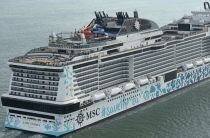
MSC Cruises expands Formula 1 presence through partnership with BWT Alpine
MSC Cruises has strengthened its involvement in Formula 1 (F1) by securing a multi-year partnership with the BWT Alpine team, further integrating its...
February 18, 2025 - Cruise Industry
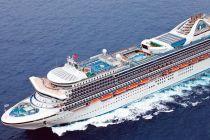
Princess Cruises 2026-2027 Australia-New Zealand ships and itineraries
Princess Cruises announced 2026-2027 fleet deployment for Australia, New Zealand, and the South Pacific. The program features diverse itineraries...
December 6, 2024 - Cruise Industry
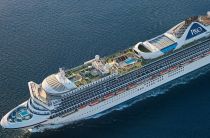
CCL-Carnival Cruise Line expands Australian fleet with new 2026-2027 itineraries
CCL-Carnival Cruise Line is preparing for its Australian expansion with the addition of two ships from P&O Cruises Australia, Carnival Adventure...
October 3, 2024 - Cruise Industry
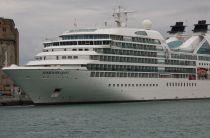
Seabourn announces 2025-2026 season for Seabourn Quest, featuring Panama Canal and Pacific Islands
Seabourn has unveiled a series of itineraries for the Seabourn Quest, set to explore Australia, New Zealand, the South Pacific, Hawaii, and the...
August 16, 2024 - Cruise Industry
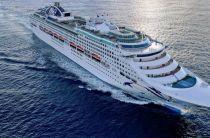
Carnival Corporation retires P&O Australia brand
The world's largest cruise shipowner Carnival Corporation has announced the discontinuation of its Australian brand P&O Australia in a strategic...
June 4, 2024 - Cruise Industry
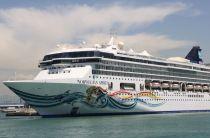
NCL rolls out new Asia-Pacific and Australia cruises for 2024-2026 seasons
NCL-Norwegian Cruise Line is set to launch 30+ new port-intensive cruises across the Asia Pacific, Australia, and New Zealand regions. These voyages...
May 23, 2024 - Accidents
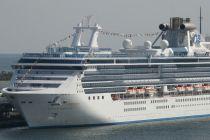
Princess Cruises alters routes for World Cruises, avoiding Middle East and Asia
Princess Cruises has adjusted the itineraries for its two 2025 World Cruises, opting to exclude visits to the Middle East and Asia due to ongoing...
April 30, 2024 - Accidents
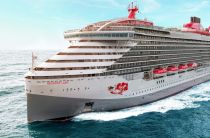
Virgin Voyages cancels Australia&New Zealand cruises 2024-2025 due to Red Sea crisis
Virgin Voyages, the travel brand company founded by billionaire Richard Branson, has made the decision to cancel its Australia and New Zealand 2024...
February 27, 2024 - Cruise Industry
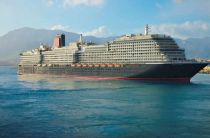
Cunard unveils 2025-2027 voyages, new Caribbean routes, simultaneous World Cruises
Cunard announced the commencement of sales for sailings spanning from September 2025 to January 2027, inclusive of new Caribbean itineraries leaving...
February 22, 2024 - Cruise Industry

Murray River Paddlesteamers unveils 5-Star riverboat for 2025
Murray River Paddlesteamers has officially announced the 2025 launch date and the commencement of bookings for PS Australian Star, Australia's...
January 16, 2024 - show more news
